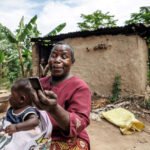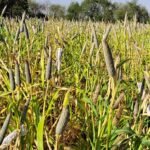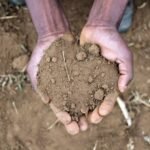By Zablon Oyugi, July 22, 2025 – A new report by non-governmental organisation, Farm Africa highlights that coffee grown in agroforestry systems has the potential for numerous environmental and economic benefits over coffee grown on large swaths of deforested, chemical-doused land.
The report, based on a three-year project in the Ethiopia’s ecologically critical Ilu Ababor Zone, shows how sustainable coffee farming can become a powerful tool for forest conservation, climate resilience, and rural prosperity.
This comes at a time the European Union prepares to enforce its landmark deforestation-free regulation (EUDR) at the end of 2025, and Ethiopia is taking major strides to align its coffee production with the new law, which requires that coffee imports be free from links to deforestation.
The “Coffee for Conservation” initiative, led by Farm Africa in partnership with local authorities, focused on developing a sustainable forest coffee value chain while restoring degraded landscapes and diversifying community incomes.
“By strengthening community-led forest management, improving market access, and promoting agroforestry, we’ve demonstrated that it’s possible to balance economic development with environmental preservation,” said Teferra Amare, lead author of the Farm Africa report.
Preserving Forests and Biodiversity
At the heart of the project was a commitment to forest protection. Forests in the Ilu Ababor Zone are home to Coffea arabica and vital for global carbon storage and biodiversity. Yet, increasing population pressure and limited alternative livelihoods have fueled deforestation.
To counter this, the project worked with 19 Participatory Forest Management Cooperatives (PFMCs) across four districts, enabling local communities to co-manage forests with the Oromia Forest and Wildlife Enterprise. Activities included establishing six nurseries, distributing 58 kg of forest seeds, and training nursery staff—leading to the planting of over 2,435 hectares of open land with 360,036 tree seedlings and achieving an impressive 85% survival rate.
Communities also embraced energy-efficient stoves, with usage soaring from 18% to 66% of households—reducing reliance on fuelwood and minimizing forest degradation.
Reforesting Through Enterprise
Innovative reforestation efforts linked directly to livelihood improvements. Farmers like Solomon Mekonnen planted fast-growing Grevillea woodlots on deforested farmland. “One and a half hectares of my farm are now covered with trees, and my coffee grows better in their shade,” he said. “These woodlots will soon be ready for market, and we’re seeing birds and wildlife return.”
The use of multi-purpose trees for shade-grown coffee, bamboo for drying mats, and seedlings for sale has helped communities see forests not as barriers to income but as assets to protect and grow.
Sustainable Farming for Climate Resilience
With 95% of Ethiopian coffee produced by smallholders, climate-smart agricultural practices were central to the project’s success. Training in agroforestry, composting, and sustainable vegetable production lifted the percentage of households adopting climate-resilient methods from 49% to 76%.
Farmers received over 1,300 grafted avocado and 600 banana seedlings to integrate with coffee. These interventions supported food security and reduced pressure on forests. Household income from vegetables rose by 280% (ETB 1,245 to ETB 6,506), while average incomes from coffee increased by 45%, even after adjusting for inflation.
The shift toward sustainable practices not only reduced the average annual deforestation rate by 43% (from 0.07 to 0.04 hectares/year) but also improved nutrition, with dietary diversity scores rising from 5.7 to 7.2.
Market Access and EUDR Compliance
With EUDR set to bar coffee linked to deforestation from entering European markets, the project helped PFMCs meet international standards by promoting traceability, quality assurance, and organic certification.
Six cooperatives achieved full business qualification, including Bonsa Kashe, which sold over 15,700 kg of coffee and earned ETB 3.28 million (USD 58,800). Cooperatives such as Abdi Bori and Aba Gemta secured direct access to central markets, exhibitions, and national buyers. Notably, 99% of marketed coffee met export quality standards—up from 73% in 2021—and 44% met specialty grade standards.
“Before, we sold to local traders for less. Now, we negotiate prices and understand market trends,” said Abde Musa, a member of the Abdi Bori cooperative. Chairman Mulugeta Tafesse credits the cooperative’s growth to the knowledge and market access enabled by the project: “More than 80% of my income is from this cooperative. We now operate independently and sustainably.”
Empowering Women and Communities
Women, who often face barriers to land ownership and finance, played a key role. Over 700 women joined Village Savings and Loan Associations (VSLAs), gaining access to over ETB 1.2 million in collective savings. More than 583 women received credit for enterprises such as poultry farming and coffee retail.
The cooperative model promoted inclusive leadership, with training in governance, forest stewardship, and business management. Organizational capacity scores among PFMC leaders rose by 48%, indicating stronger community-driven resource management.
A Model for Sustainable Development
As Europe tightens coffee import regulations, Ethiopia’s investment in deforestation-free production is timely and strategic. The Farm Africa project offers a replicable model that aligns with the EUDR, fosters biodiversity, and builds climate resilience.
“The success in Ilu Ababor shows that sustainable coffee is not just about compliance—it’s about transforming lives and landscapes,” said Amare.
By placing communities at the center of conservation and equipping them with the tools to thrive, Ethiopia is not only safeguarding its forests but also securing the future of its most iconic export.







